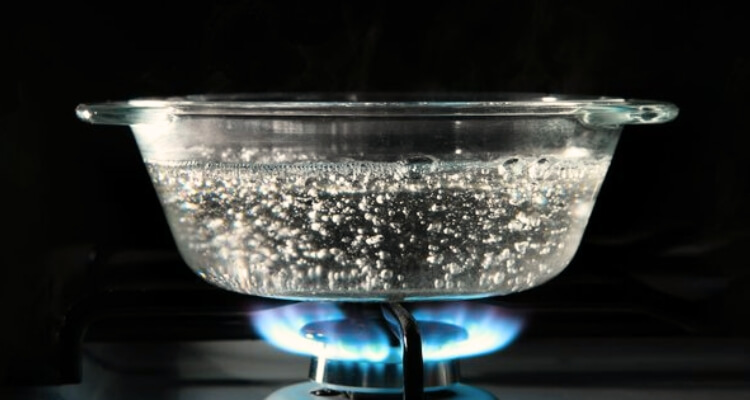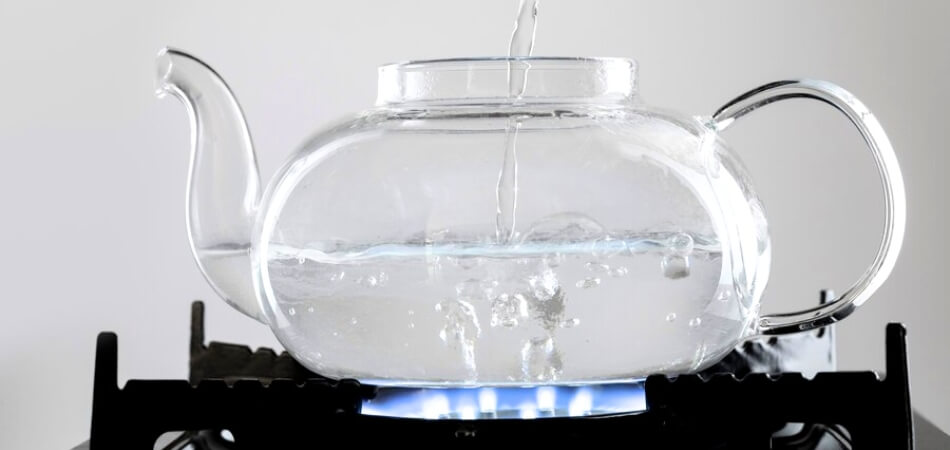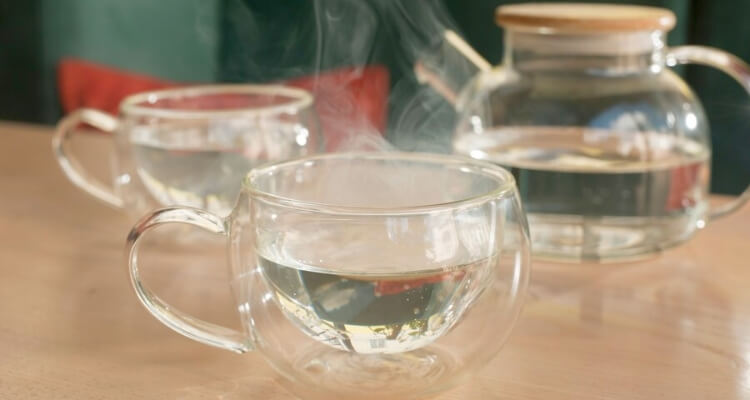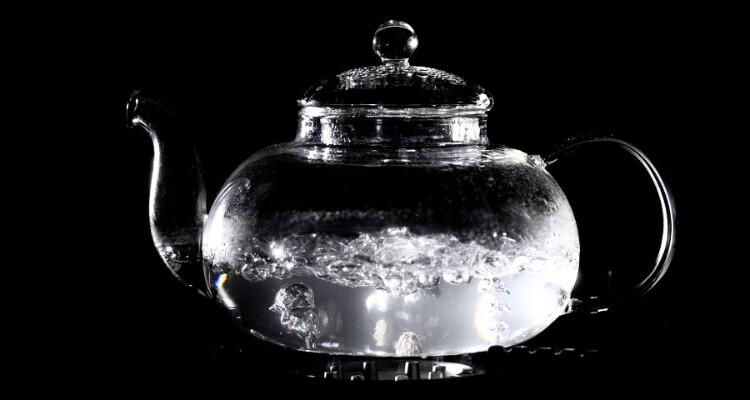Ensuring your tap water is pure and safe to drink often comes down to a simple, age-old process: boiling. But just how long to boil tap water to purify it effectively?
The response is directly boiling your tap water for at least one minute is crucial for killing off harmful bacteria and viruses that might be lurking in it. This method is both accessible and efficient, making it an excellent first line of defense for your drinking water.
For those seeking an extra layer of purity, products like the GOPure Pod can further enhance water quality by filtering out additional impurities.
Curious about how this works and whether it’s the right option for you? Keep reading as we fall deeper into the benefits of boiling and additional purification methods to keep your water safe.
Why Boil Tap Water?
Would you like to know why boiling tap water is often recommended? Here are the reasons for this common advice, explained in simple, easy-to-understand terms.

- Removing Harmful Microorganisms: When you boil tap water, you’re essentially giving those pesky microorganisms, like bacteria and viruses, a hot bath they can’t survive. The high temperature kills them off, making the water safer to drink. Think of it as a natural disinfection process for your water.
- Neutralizing Chemicals: Tap water can sometimes contain traces of chemicals like chlorine or fluoride, which are added during the water treatment process. Boiling water can help to reduce the concentration of these chemicals, making the water taste better and potentially safer to consume.
- Reducing Contaminants: Depending on where you live, your tap water might contain contaminants like lead or pesticides. Some of these impurities can be removed by boiling water, but not all. Consider the GOpure Pod for comprehensive water purification.
- Improving Taste: We all know that tap water occasionally doesn’t taste very good. The process of boiling can improve the taste of water by removing minerals and other compounds that cause it to taste funky. Hence, boiling is an excellent way to make your water more palatable.
- Peace of Mind: You can take an extra step to ensure the safety and quality of your water by boiling tap water. With clean, safe water, you can stay hydrated easily and effectively.
What Does Boiling Do to Tap Water?
Have you ever wondered why boiling tap water is often recommended? Here’s what happens when you boil tap water and why it’s good to do.
Killing Microorganisms
Boiling tap water is like giving it a hot bath. The high temperature kills off harmful microorganisms like bacteria and viruses that might be lurking in your water. It’s like nature’s way of disinfecting your H2O, making it safer to drink.
Removing Chemicals
Sometimes tap water contains trace amounts of chemicals like chlorine or fluoride, which are added during the water treatment process. Boiling water can help to reduce the concentration of these chemicals, making the water taste better and potentially safer to consume.
Reducing Contaminants
Depending on where you live, your tap water might contain contaminants like lead or pesticides. Boiling the water can help to remove some of these impurities, though it might not get rid of all of them entirely. For more thorough purification, you might want to consider using a water purification product like the GOpure Pod.
Improving Taste
We all know that tap water occasionally doesn’t taste very good. Water can taste better when it is boiled to remove minerals and other compounds that can cause it to taste funny. If you want to make your water more palatable, boil it.
Peace of Mind
Boiling tap water can give you peace of mind knowing that you’re taking an extra step to ensure the safety and quality of the water you drink. It’s a straightforward and effective way to make sure you’re staying hydrated with clean, safe water.
How Long to Boil Tap Water to Purify?
Boiling tap water is a reliable method to make it safe for drinking, especially if you’re uncertain about its purity. This simple process eliminates harmful organisms like bacteria and viruses. It’s particularly crucial in areas where water quality is questionable or after a natural disaster.

To effectively purify tap water by boiling, start by filling a pot with water. Ensure the pot is clean and does not contain any previous residues that could contaminate the water. Place the pot on a stove and turn the heat to high, bringing the water to a rolling boil.
Once the water has reached a rolling boil, keep it boiling for at least one minute. For those living at altitudes above 6,500 feet, it’s advisable to extend the boiling time to three minutes. This extended time helps compensate for the lower boiling point at higher elevations.
Remove the pot from the heat. Allow the water to cool naturally without adding ice or placing it in the refrigerator. Cooling it naturally helps ensure that no new contaminants are introduced during the cooling process.
Transfer the cooled water to clean storage containers. Cover the containers to prevent contaminants from entering. The water is now safe to drink or use for cooking, providing peace of mind regarding its purity.
What Happens if You Overboil Water?
We might leave water boiling on the stove for longer than intended. While it’s easy to assume that boiling water longer just makes it safer, that’s not always the case. Overboiling can have a few unintended consequences, which are important to understand:
- Loss of Water Volume: The most obvious effect of overboiling is the reduction in water volume. Extended boiling causes more water to evaporate, and in extreme cases, you could end up with very little left!
- Concentration of Minerals: As the water volume decreases, minerals that are dissolved in the water become more concentrated. This means if your tap water has high levels of calcium, magnesium, or other minerals, these can concentrate to levels that might not be ideal for taste or health.
- Change in Taste: Water that has been boiled too long can take on a flat, dull taste. This is due to the loss of dissolved oxygen, which normally helps to enhance the water’s fresh taste.
- Energy Waste: Boiling water for more than the necessary time wastes energy. Whether you’re using gas or electricity, this means unnecessary utility costs and environmental impact.
- Risk of Pot Damage: If left unattended, overboiling can lead to all the water evaporating, leaving the pot dry and on the heat. This can damage the pot, stovetoply ruin a stovetop, and even pose a fire hazard.
Benefits of Boiling Tap Water for Purification
Boiling tap water is a straightforward and effective method for making water safe to drink. It’s a vital technique, especially in emergencies or in areas with questionable water quality. Combining this method with products like the GOpure Pod can enhance the purification process.

Eliminates Harmful Pathogens
Boiling water kills bacteria, viruses, and parasites, preventing waterborne diseases. This makes it a reliable option for ensuring your drinking water is safe. It’s particularly useful when paired with the GOpure Pod for added purification.
Improves Water Clarity
Boiling helps to remove some impurities that cause cloudiness in water. This process can reduce sediment and other particulates, making the water clearer and more appealing to drink. Combine this with a GOpure Pod to further enhance clarity and taste.
Removes Unpleasant Tastes and Odors
Boiling can often neutralize or reduce unpleasant tastes and odors in tap water. While it’s effective on its own, using the GOpure Pod afterward can further improve the sensory qualities of your water.
Cost-Effective and Simple
Boiling water requires no sophisticated technology or expensive equipment. It’s an accessible option for most households to ensure water purity. Adding a GOpure Pod can be an economical way to extend the benefits of boiled water.
Provides Emergency Preparedness
In emergencies like natural disasters when water supplies may be compromised, boiling water is a life-saving measure. It’s a quick solution to access safe drinking water, especially when complemented by the GOpure Pod.
How Does Boiling Water Make It Safe to Drink?
Boiling water is a fundamental, effective method to ensure drinking water is safe, especially in areas where water quality may be compromised. This process is simple and accessible, requiring only a heat source and a container. Integrating a product like the GOpure Pod can further purify and enhance the water after boiling.

- Heating to a Boil: Start by heating the water in a clean pot until it reaches a rolling boil. This intense boiling kills most types of harmful pathogens present in the water.
- Sustaining the Boil: Maintain the boil for at least one minute to ensure all pathogens are neutralized. At higher altitudes, extend this time to three minutes due to lower atmospheric pressure.
- Cooling Down: After boiling, allow the water to cool naturally before handling. This prevents the risk of burns and makes the water safer to consume.
- Enhancing Purity: Once the water has cooled, you can enhance its purity and taste by using a GOpure Pod. This product works well with boiled water, removing additional contaminants and improving flavor.
- Storing Safely: Transfer the cooled, purified water into clean, covered containers to avoid recontamination. Store in a cool, dry place to maintain water quality.
FAQs About How Long to Boil Tap Water to Purify?
Boiling tap water is a crucial step in ensuring its safety for consumption, especially in areas where water quality is suspect. Here’s a list of frequently asked questions to guide you through the process of boiling water effectively.
Does Boiling Tap Water Remove Chemical Contaminants?
Boiling primarily removes biological contaminants and does not effectively eliminate chemical impurities. For chemical pollutants, additional purification methods like activated carbon filters are recommended.
What Happens if I Boil Water for Too Long?
Overboiling can lead to a significant reduction in water volume and a concentration of remaining minerals. This might affect the taste and mineral balance of the water.
How Can I Improve the Taste of Boiled Water?
To improve the taste of boiled water, allow it to cool with the lid off to reintroduce oxygen. You can also use a product like GOpure Pod to enhance the flavor.
Should I Boil Bottled Water?
Bottling processes typically ensure water is safe to drink without further boiling. However, if the bottle has been compromised or stored improperly, boiling is a safe precaution.
What Is the Safest Way to Store Boiled Water?
After boiling, store the water in a clean, airtight container to prevent contamination. Keep it in a cool, dark place to maintain freshness and safety.
Warp up
Ensuring the purity of tap water through boiling is a straightforward yet critical practice for safeguarding your family’s health. By subjecting tap water to a rolling boil for at least one minute, harmful microorganisms like bacteria and viruses are effectively neutralized, providing a reliable first line of defense.
This method not only improves the safety of drinking water but also enhances its taste by removing unpleasant compounds. However, for those residing at higher altitudes, extending the boiling time to three minutes is advisable to compensate for atmospheric pressure differences.
Incorporating additional purification methods such as the GOPure Pod can further elevate water quality, offering an extra layer of reassurance. The next time you ponder “How Long to Boil Tap Water to Purify?”, remember, a minute of boiling can go a long way in ensuring the safety and purity of your drinking water.






